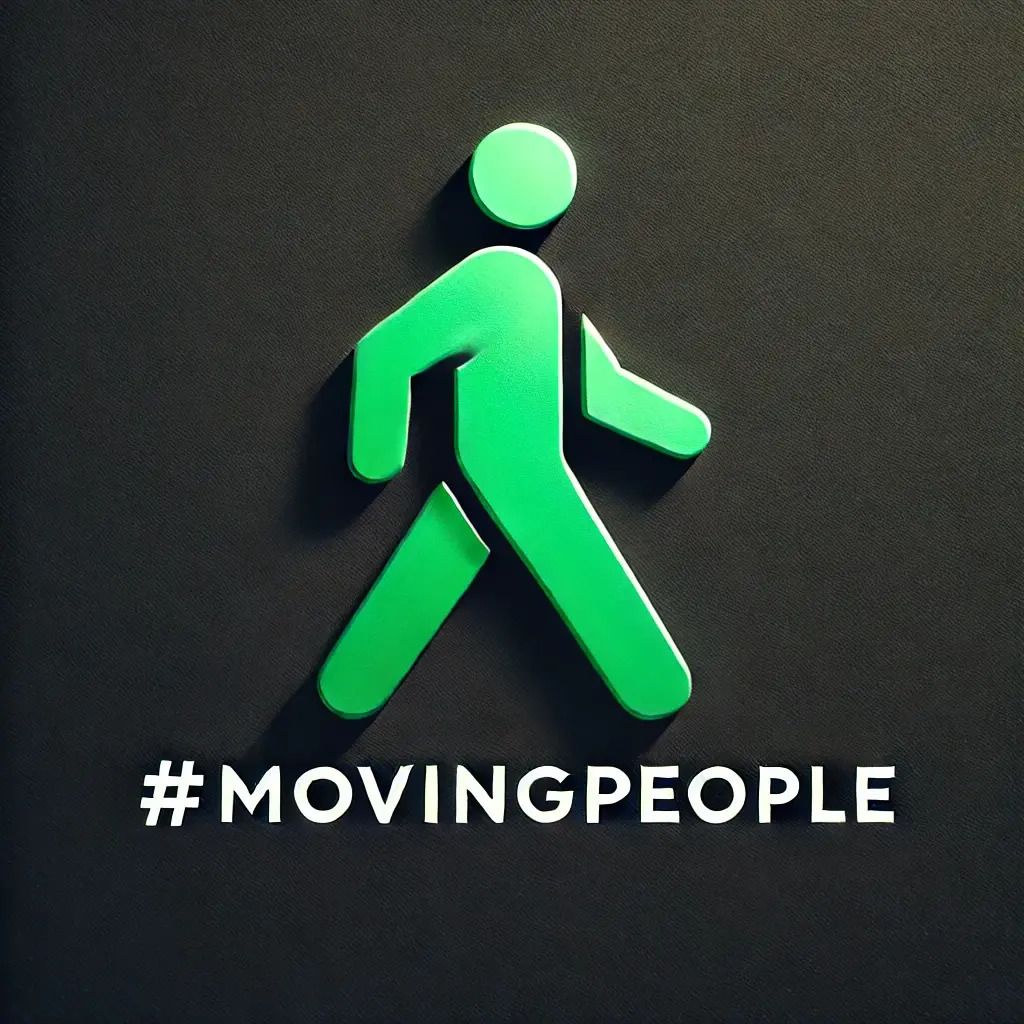Building an automotive brand in 2025 is extremely challenging. Netzah Sadeh from PNY | electric cargo motorbikes is doing just that - offering an electric motorbike built for the logistic & delivery industry.
The weekly #movingpeople is going on an August vacation - and a rethink time. It will come back in September, and will remain a FREE extensive weekly report on mobility and urban delivery, but I’m taking a time out to think on how it should be structured.
While the weekly #movingpeople is taking August off, the #movingpeople-meets series continues. If you haven’t already, please help me rethink my newsletter by answering this short survey:
Hi Netzah. You’re building an automotive brand, an electric cargo motorbike, in an environment which is extremely challenging. Van-Moof, CAKE, Zapp EV and I could go on, are all examples of struggling e-two wheeler manufacturers. In addition, the funding ecosystem is tough. Explain to me and readers why you are doing this.
(Laughs) All of the above is correct, other than the difference between e-bikes and e-cargo motorbikes, which is what we’re building. The answer is that we are addressing a real pain in the market with a great solution. I believe our Ponie P2 represents a new type of vehicle that does not exist today. A 2-wheeler with the largest cargo capacity of its kind and all thanks to our bottom up design approach of the frame which is the heart of the Ponie P2. The Ponie P2 solves a real problem in terms of last-mile delivery efficiency, emissions and safety.
Let’s talk efficiency - we provide a better delivery service vehicle. We enable a better payload, up to 400L and 199kg, allowing larger customer orders and the ability to service a number of customers in one delivery round. We also have a larger capacity battery so provide a better range, up to 185km, that means more up-time. We reach higher speeds - up to 100 km/h, or 60 mph, allowing delivery riders to get in line with cars and accelerate fast. This all leads to a more efficient delivery service. In addition we’re 100% electric, which is super important right now with the rise of ULEZ (Ultra Low Emission Zones). And, this is also super important - we’re designed for safety. We designed the Ponie P2, our latest version, so that the weight doesn’t affect the motorbike in a negative way, and also installed ABS.
Where there is pain - there is a product. That’s why we’re here.

Strong start. Let’s go back to how it all started.
Well, years ago, in my 20s, I was a delivery rider. No apps back then. And I found the delivery experience clumsy and uncomfortable. I was also an industrial design student back then, and decided to do my final uni assignment on an electric bike for deliveries. At the time, it was 100% futuristic. And that was it. I graduated and went on to develop an international career in design and then moved to the business side, did that for many years and then the pandemic hit. I sat at home and the passion awoke. I didn’t start it just then, but in 2021 I found my partner, Roy Grinfeld, who is an automotive designer and engineer, and here we are.
What have you been doing for the past three years?
Building the product, bootstrapped. We’ve built 5 prototypes. Piloted with different players. Changed focus from only grocery to cargo in general. Building a new vehicle takes time, especially on a budget. We started drawing sketches and engineering work in 2021. In 2022 we partnered with “MAYER Cars and Trucks”, a large vehicle importer, as our business partner, and with DHL, as a design partner. In 2024 started manufacturing, in China, and in early 2025 the 50 first vehicles arrived in Israel, the 1st order was made for “MAYER”.
You mentioned pilots with different players. Who do you work with? Who did you sell to?
Early on, August 2021, we partnered with DHL who became our design partner. We also worked with Yango Deli, “Supersal”, a large national supermarket chain, restaurant chains, logistics/delivery companies, and Wolt.
With Wolt it is an interesting story - they don’t own their own fleet, they don’t buy vehicles. But the Ponie P2, our electric Cargo-motorbike, fits their use case perfectly. Better payload, range, speed. Efficiency. So we’re working together with MAYER and them to market our product to their riders, pushing Ponie P2 into the market together. Looking at Western Europe, our target market, this example of co-marketing is bound to repeat itself.
You mentioned Europe - which markets are you targeting?
In terms of end customers - we’re ready for all use cases - cargo, grocery, restaurants, own fleets, 3PL. We’re OK with all. We’re targeting local distributors in each country who have the infrastructure to import, sell and service electric moped and scooters, and have already sold and service them for both the likes of Wolt, preparing marketing materials targeting delivery personnel, and also selling directly to companies who own their own fleet.
Our 1st focus is on our home market - Israel. We have a distributor, MAYER, that this year bought 50 vehicles from us, and we’re actively working to register those on the roads. So far, other than Wolt people, we’ve sold to an emergency organisation and are in advanced discussions with a large restaurant chain, which have their own fleet and delivery personnel. Emergency organisations are a great fit for the product - it is the only fully electric motorbike that is tested as an emergency vehicle thanks to its cargo design.
In terms of target markets - we’re targeting Western Europe. We have motorbikes in Germany and France, used as demo vehicles. I should mention that we already have all the required EU licences - we’re a certified L3eA1 category vehicle, fit for over 16 years old to drive.
We’re also looking at South America - it has a lot of two-wheeler use and a busy delivery industry. In SA, we’re looking at a local assembly model. But that’s still early days.
What is your business model?
Classic automotive brand model. We sell to wholesalers and distributor networks and they manage sales in their respective territory. In turn, they will target the customers we've talked about so far. We make money on sales of vehicles, spare parts and accessories. We stick to the basics economics of the industry, we’re not innovating here.
Let’s talk prices. How much does it cost?
We have a small batch of 50 motorbikes that’s out in the market, so obviously the advantages of scale are still an issue. It will be more expensive than your average scooter or moped used commonly today, but we are aiming to create a premium category, in terms of efficiency and safety. How much? It will probably cost just under X3 your basic 125cc bike or X2 the electric versions. But when comparing to mini vans, we are offering a third of the vehicle cost for better operation costs and higher efficiency, and that's where the magic happens. When customers tell us that the Ponie P2 is replacing a car or a mini van, it's music to our ears.
Expand on that.
We have two main competitor vehicles - scooters, typically 125cc, and mini vans used for delivery. We’re better than scooters in terms of cargo volume, range, speeds and safety - and most are not electric. With mini vans there are obvious disadvantages that have to do with traffic, parking and operating costs of a mini van, but so far mini vans were needed versus existing scooter solutions. With us, the relevant use case for mini vans has shrunk. So we’re the best of both worlds, in my opinion.
OK. What’s next?
Focusing on sales, Israel first and expanding to Europe. Other than that we’re presenting at the US Plug & Play Smart Tech Pitch, on September 12th and are focusing on finding the right partners to grow with.
So who should reach out to you?
Mainly local distributors that have the knowledge and experience in importing, selling and service electric scooters and motorbikes but also anybody interested in the product, either to test, buy, use. We're at the stage where we're talking to everyone in the market.
Anything you’d like to share with fellow entrepreneurs?
Think about the journey, motives, and blind spots of the people you take advice from. Even when people genuinely try to help with good advice, they are influenced by their own journey and learnings, and so sometimes the advice they give would fit them, not you. Learn from them all you can about the market and the dynamics of it and be mindful.
Thank you for reading #movingpeople. If you like what you're reading, please share it with your friends and colleagues so they can benefit from it too.



